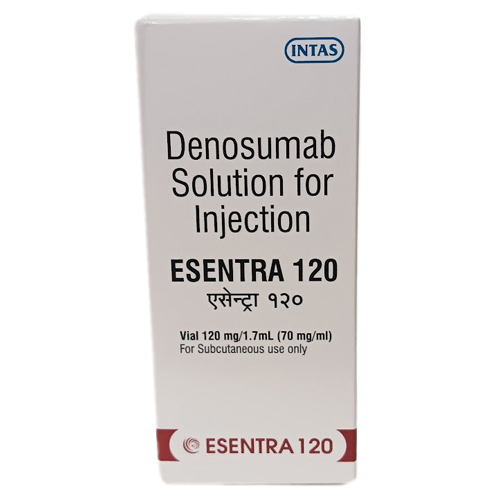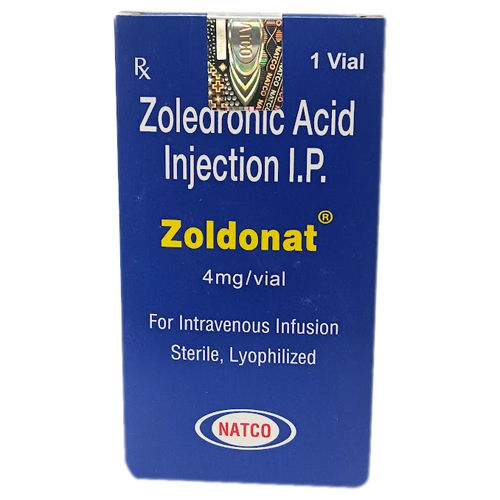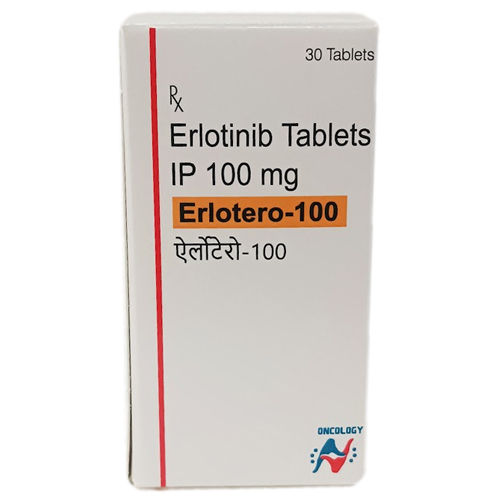120 मिलीग्राम एसेन्ट्रा इंजेक्शन
उत्पाद विवरण:
- दवा का प्रकार इंजेक्शन
- भौतिक रूप लिक्विड
- खुराक 120 मिलीग्राम
- खुराक संबंधी दिशा-निर्देश चिकित्सक के अनुसार
- स्टोरेज निर्देश सूखी और ठंडी जगह रखें
- अधिक देखने के लिए क्लिक करें
120 मिलीग्राम एसेन्ट्रा इंजेक्शन मूल्य और मात्रा
- 10
120 मिलीग्राम एसेन्ट्रा इंजेक्शन उत्पाद की विशेषताएं
- लिक्विड
- चिकित्सक के अनुसार
- सूखी और ठंडी जगह रखें
- 120 मिलीग्राम
- इंजेक्शन
120 मिलीग्राम एसेन्ट्रा इंजेक्शन व्यापार सूचना
- ,
- 5000 प्रति सप्ताह
- 7 दिन
- , , , , , , , , , , , , , , , , , , , , , , , , , , , , , , , , , , , , , , , , ,
उत्पाद वर्णन
Esentra 120 Injection is a medicine used in the treatment of osteoporosis in postmenopausal women and in men at increased risk of fractures. It makes the bones strong and reduce the risk of fractures.
Here are some frequently asked questions (FAQs) about Denosumab Solution for Injection:
-
What is Denosumab Solution for Injection?Denosumab Solution for Injection is a medication used to treat osteoporosis and bone-related conditions.
-
How does Denosumab work?Denosumab works by inhibiting a protein called RANKL (receptor activator of nuclear factor kappa-Î ligand), which plays a key role in bone breakdown. By inhibiting RANKL, Denosumab helps to decrease bone loss and increase bone density.
-
What conditions does Denosumab Solution for Injection treat?Denosumab is primarily used in the treatment of osteoporosis in postmenopausal women and in men at high risk of fractures. It is also used to treat bone loss associated with certain cancers, such as breast cancer and prostate cancer, when bone metastases are present.
-
How is Denosumab Solution for Injection administered?Denosumab is administered as a subcutaneous injection (under the skin) once every six months. The injection is typically given in the upper arm, upper thigh, or abdomen. It's important to follow the dosing schedule recommended by your healthcare provider.
-
What are the common side effects of Denosumab Solution for Injection?Common side effects of Denosumab may include back pain, joint pain, muscle pain, pain in the arms or legs, high cholesterol levels, and urinary tract infections. Rare but serious side effects may include osteonecrosis of the jaw (ONJ) and atypical femoral fractures.
-
Who should not take Denosumab Solution for Injection?Denosumab may not be suitable for everyone. Patients with hypocalcemia (low blood calcium levels) or a history of hypocalcemia, as well as those with allergies to Denosumab or any of its components, should not take Denosumab. It's important to discuss your medical history and any medications you are currently taking with your healthcare provider before starting treatment.
-
Is Denosumab Solution for Injection safe during pregnancy and breastfeeding?Denosumab is not recommended for use during pregnancy or breastfeeding. It's essential to discuss the risks and benefits with your healthcare provider if you are pregnant, planning to become pregnant, or breastfeeding while considering Denosumab treatment.
-
Are there any interactions with other medications?Denosumab may interact with certain medications, including calcium supplements and other medications that affect bone metabolism. It's important to inform your healthcare provider about all medications you are taking, including prescription drugs, over-the-counter medications, vitamins, and supplements, to avoid potential interactions.

Price: Â
- 50
- 100
- 200
- 250
- 500
- 1000+







 संपर्क करें
संपर्क करें मुझे निःशुल्क कॉल करें
मुझे निःशुल्क कॉल करें
